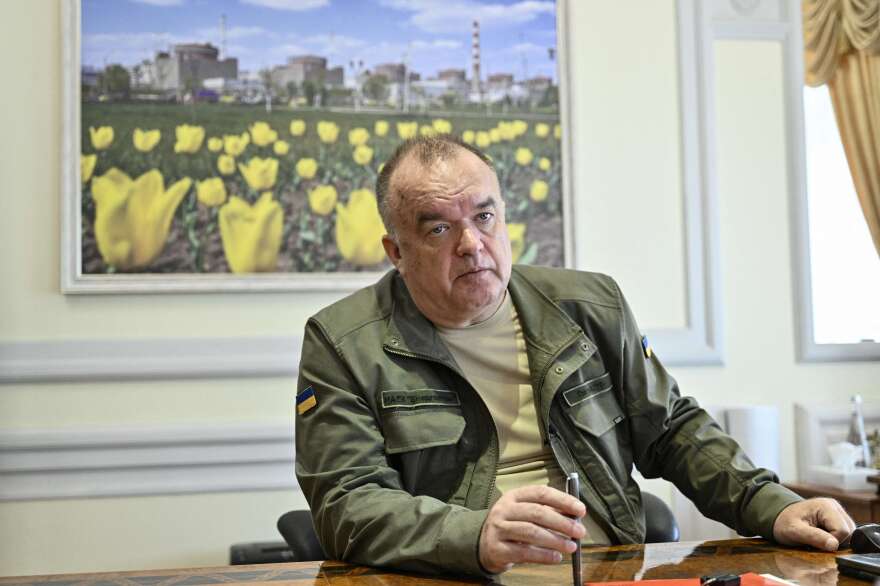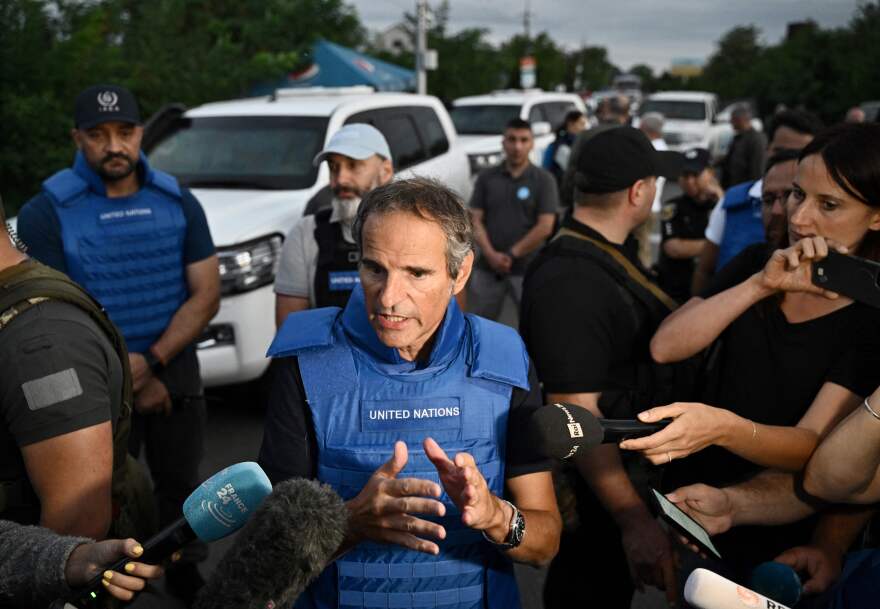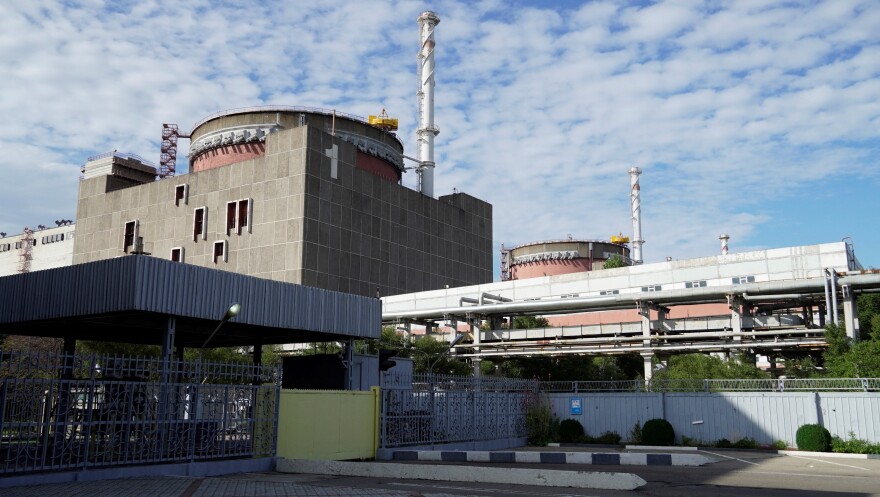KYIV, Ukraine — Ukrainian operators of the Zaporizhzhia nuclear power station won't restart the plant until its occupying Russian forces leave the facility, the head of Ukraine's nuclear agency, Petro Kotin, tells NPR.
Ukrainian workers powered down the war-damaged plant last weekend for safety reasons amid continued shelling. On Tuesday, workers finished restoring all three backup power lines — a sliver of good news at the plant that officials and energy experts have warned could face a catastrophe as fighting continues around it.
Still, the situation remains tense and unpredictable at Zaporizhzhia — Europe's largest nuclear plant, which has been occupied by Russian troops since early March but is operated mostly by Ukrainian staff — and concerns about the risk of a nuclear disaster are still looming as fighting picked up in that part of southern Ukraine.
After a recent inspection, the International Atomic Energy Agency said it found troubling evidence of destruction and workers operating under conditions causing them extreme distress.
"It is just awful," says Petro Kotin, president of Ukraine's atomic energy agency, Energoatom, which operates the plant. "Because the staff cannot operate freely, thinking about nuclear safety of the plant. Instead of that, they are thinking about what will happen next with them, with their families — will they be captured or tortured — or killed, even?"

Although Ukrainian workers still operate the plant, Russia has brought in some of its own nuclear engineers and experts. But according to nuclear experts, the Ukrainian systems are different from Russia's, meaning only trained staff know how to use them safely and effectively.
Kotin says he is in regular contact from his base in Kyiv with managers at the Zaporizhzhia plant, which is southeast of the capital in the city of Enerhodar. But the Russians will only allow him to talk to them by phone, not by video, as he does with managers at the other Ukrainian facilities he oversees.
"I can tell by evaluating their voices that they are on the edge of psychological disaster. These people are very exhausted," he says.
There have been reports of physical abuse of the Ukrainian staff, and though NPR has not independently verified specific incidents, the IAEA has raised concerns for months about the well-being of staff working under extremely stressful conditions.
Kotin lists instances of violence against his employees he says he knows about: Dozens were detained and tortured for days, he says. One died after Russian soldiers beat him. Another was shot five times in his apartment in front of his family.
Last week, the final reactor was taken offline, or put into "cold shutdown" mode, creating a safer situation if power were to be lost at the plant again — and taking some stress off staff since fewer people are required to operate the plant. In this mode, the reactor doesn't produce electricity, but still requires power to keep its cooling systems working, which is why the restoration of the power lines is critical.
Taking the country's largest nuclear power plant offline is a big loss for energy production in Ukraine. The Zaporizhzia Nuclear Power Plant has six of Ukraine's 15 nuclear reactors, and before the turmoil at Zaporizhzhia caused a disruption, nuclear power usually provides slightly over half of the country's energy.
Right now, coal is helping to make up the difference, but many of the coal plants are in the east, surrounded by heavy fighting or even destroyed. As some stability returns in other parts of the country, more people go back home and winter approaches, energy needs will no doubt increase. The country could be looking at a shortage.

While the IAEA and other international organizations have been pressing for a demilitarized zone around the plant, efforts haven't gone far.
But Kotin remains hopeful that Ukraine will regain control of the complex soon.
"I hope that the Russians finally understand that they are not in a place that they should be. So what is the best that they can do? Just take off from the plant and go back to Russia," he says.
That kind of optimism mirrors how many Ukrainians are feeling now after the massive success of the counteroffensive in the east: a renewed sense of possibility for a Russian retreat.
Copyright 2022 NPR. To see more, visit https://www.npr.org.





